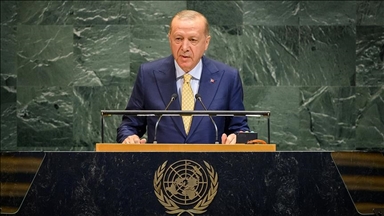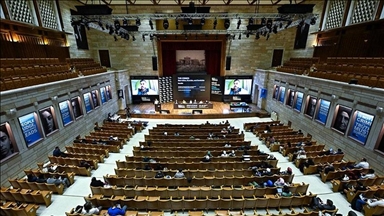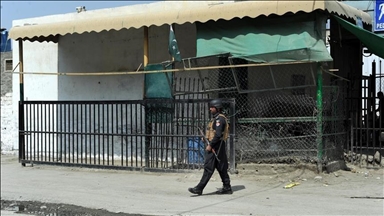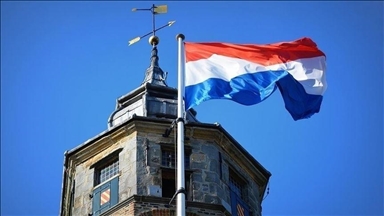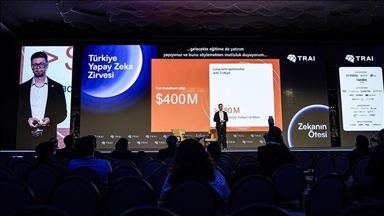AI can help tackle the global waste crisis: Entrepreneur
AI-powered systems can help track materials in recycling and disposal, reduce emissions and unlock economic opportunities in the circular economy, says co-founder of waste intelligence company
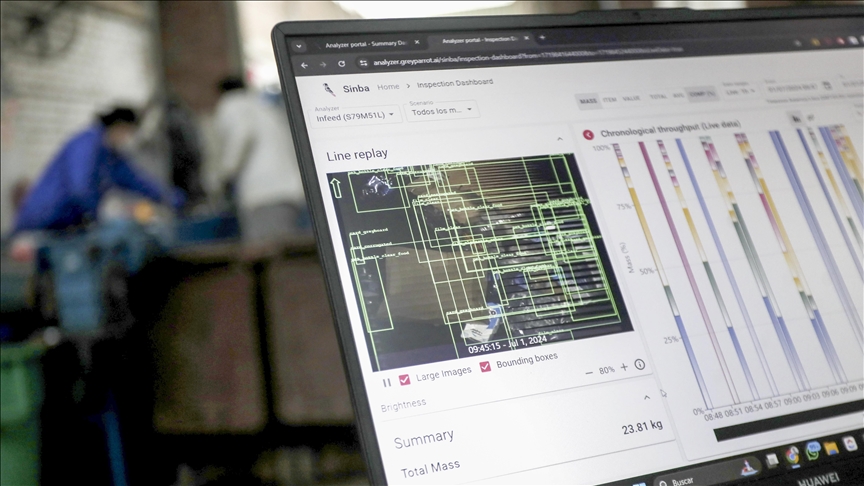 Artificial intelligence revolutionizing the traditional recycling industry in Peru (Photo by Klebher Vasquez)
Artificial intelligence revolutionizing the traditional recycling industry in Peru (Photo by Klebher Vasquez)
ISTANBUL
Artificial intelligence can help tackle the global waste crisis while creating new economic opportunities, said Ambarish Mitra, co-founder of UK-based technology company Greyparrot.
“It's not just about bins and recycling. It's really about redesigning the economy. And there is a very big economic opportunity,” Mitra told Anadolu on the sidelines of the Zero Waste Forum in Istanbul.
Global waste is directly linked to the climate crisis, accounting for roughly 4.5%-6% of greenhouse gas emissions, particularly from plastics, said Mitra.
“Global greenhouse emissions are connected to plastic production and disposal,” he noted.
🌍 Artificial intelligence can tackle the global waste crisis while creating huge economic opportunities, said Ambarish Mitra, co-founder of UK-based Greyparrot
— Anadolu English (@anadoluagency) October 22, 2025
🗣️ ‘It's not just about bins and recycling. It's really about redesigning the economy. And there is a very big… pic.twitter.com/I6OEJAkm5D
Climate impact
While metals, aluminum and cardboard generally have higher recyclability, said Mitra, much of what is produced still ends up lost to nature.
“Zero waste is a climate action,” he highlighted.
He said that every piece of material recovered reduces extraction from nature, lowers energy use and cuts carbon emissions.
Mitra added that waste should not be seen as a burden but as “misplaced resources.”
“We shouldn't call it waste management. We should call it material asset management,” he said, emphasizing that it could cut global emissions up to 10%, helping to achieve the 1.5C climate target.
The target is an ambitious goal from the Paris Agreement to limit the global average temperature increase to no more than 1.5C above pre-industrial levels, which aims to significantly reduce the most severe impacts of climate change.
Mitra explained that addressing waste goes beyond bins and recycling; it requires redesigning the economy.
“The planet is at its limits. We mine 90 billion tons of materials each year to make everything that exists. Our goal is to reduce that number substantially and reuse what we already have,” he said.
He also highlighted the broader economic potential of the waste sector, noting that optimizing production, disposal and reuse represents hundreds of billions of dollars in opportunity.
Waste intelligence
Artificial intelligence can help tackle the global waste crisis, said Mitra.
Mitra said that many people forget the reality of waste, which is a global problem.
“We all complain about it, but we’re not doing enough to solve it,” he said.
He said that entrepreneurs have numerous opportunities to optimize how materials are produced, disposed of and reused, unlocking hundreds of billions of dollars in economic potential across the value chain.
Awareness of waste intelligence is better for the environment and overall economy and growth, he said.
“It’s only just begun. Dive in, and let’s solve it together,” he said.
Data and AI
Mitra emphasized that data is central to addressing waste challenges.
“Data can really help governments to set policies,” he said.
Mitra said that by tracking what materials actually end up in waste, brands can redesign packaging and cities can plan infrastructure.
“How to collect waste is to find where all the points of leakage are,” he added.
He noted that much of the waste produced is lost to nature, with only a small percentage being recycled.
According to Mitra, data changes both design and behavior, forming the foundation of nearly every circular economy solution.
“I wanted to give vision to waste and bring information out of trash and garbage,” he told Anadolu.
The Zero Waste Forum, which was launched under the patronage of first lady Emine Erdogan, the Chair of the UN High-Level Advisory Council on Zero Waste, brought together UN officials, international experts and policymakers to discuss global zero waste policies and sustainable development strategies.
Greyparrot, a partner organization of the forum, develops AI-powered systems for waste recovery facilities.




